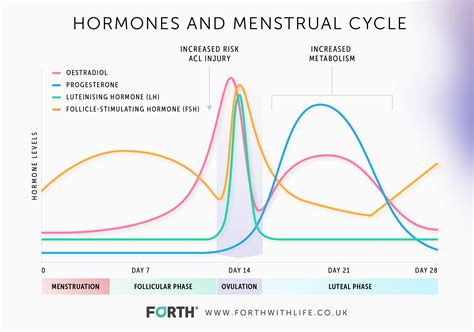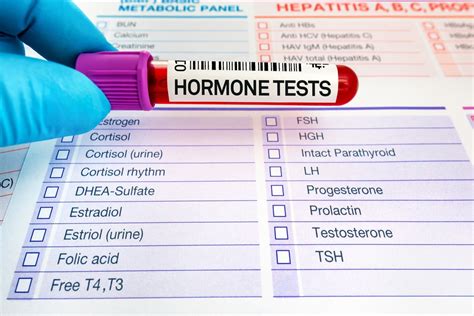Intro
Discover the importance of hormone balance for overall health. Learn how to check your hormone levels, identify imbalances, and restore equilibrium. Understand the role of hormones in weight management, mood regulation, and energy levels. Get expert advice on hormone testing, natural remedies, and lifestyle changes for optimal hormone health.
Maintaining optimal hormone levels is crucial for our overall health and wellbeing. Hormones play a vital role in regulating various bodily functions, such as growth, metabolism, and reproductive processes. However, hormonal imbalances can occur due to various factors, including diet, lifestyle, stress, and certain medical conditions. In this article, we will delve into the world of hormones, exploring the different types, their functions, and the importance of maintaining balance.
Hormones are chemical messengers produced by endocrine glands, which are specialized organs that secrete hormones directly into the bloodstream. These hormones then travel to various parts of the body, influencing the functioning of cells, tissues, and organs. With over 200 hormones in the human body, it's essential to understand the key players and their roles.

Types of Hormones and Their Functions
There are several types of hormones, each with unique functions and responsibilities. Some of the primary hormones include:
- Insulin: Regulates blood sugar levels by facilitating glucose uptake in cells.
- Thyroid hormones: Control metabolism, energy production, and growth.
- Adrenaline: Prepares the body for "fight or flight" responses, increasing heart rate and blood pressure.
- Estrogen and progesterone: Regulate female reproductive processes, including menstruation, pregnancy, and menopause.
- Testosterone: Essential for male reproductive processes, including sperm production and fertility.
Hormonal Imbalance: Causes and Symptoms
Hormonal imbalances can occur due to various factors, including:
- Poor diet: Consuming high amounts of processed foods, sugar, and unhealthy fats can disrupt hormone production.
- Stress: Chronic stress can affect hormone regulation, leading to imbalances.
- Medical conditions: Certain conditions, such as polycystic ovary syndrome (PCOS), hypothyroidism, and Cushing's syndrome, can cause hormonal imbalances.
- Aging: Hormone production naturally declines with age, leading to imbalances.
Symptoms of hormonal imbalances can vary depending on the specific hormone and individual. Common symptoms include:
- Weight gain or loss
- Mood changes: Anxiety, depression, or irritability
- Fatigue: Persistent tiredness or lethargy
- Sleep disturbances: Insomnia or excessive sleepiness
- Skin issues: Acne, dry skin, or thinning hair
Testing and Diagnosing Hormonal Imbalances
If you suspect a hormonal imbalance, it's essential to consult a healthcare professional for proper testing and diagnosis. Common tests include:
- Blood tests: Measure hormone levels in the blood.
- Saliva tests: Assess hormone levels in saliva.
- Urine tests: Evaluate hormone levels in urine.
- Physical examination: Assess physical symptoms and medical history.

Restoring Balance: Treatment Options
Treatment for hormonal imbalances depends on the underlying cause and severity of the imbalance. Common treatment options include:
- Hormone replacement therapy (HRT): Supplements hormones to restore balance.
- Medications: Regulate hormone production or alleviate symptoms.
- Lifestyle changes: Dietary modifications, stress management, and exercise.
- Supplements: Certain supplements, such as vitamin D and omega-3 fatty acids, can support hormone balance.
Diet and Nutrition for Hormone Balance
A balanced diet plays a crucial role in maintaining hormone balance. Focus on consuming:
- Whole foods: Fruits, vegetables, whole grains, lean proteins, and healthy fats.
- Omega-3 rich foods: Fatty fish, flaxseeds, and walnuts.
- Probiotic-rich foods: Yogurt, kefir, and fermented vegetables.
- Vitamin D-rich foods: Fatty fish, egg yolks, and fortified dairy products.

Lifestyle Changes for Hormone Balance
In addition to dietary changes, incorporating the following lifestyle modifications can support hormone balance:
- Exercise regularly: Aim for 30 minutes of moderate-intensity exercise per day.
- Manage stress: Engage in stress-reducing activities, such as yoga, meditation, or deep breathing exercises.
- Get enough sleep: Aim for 7-9 hours of sleep per night.
- Avoid endocrine disruptors: Limit exposure to chemicals, such as BPA and parabens, found in plastics and personal care products.
Conclusion: Taking Control of Your Hormone Health
Maintaining optimal hormone levels is crucial for overall health and wellbeing. By understanding the different types of hormones, their functions, and the importance of balance, you can take the first step towards achieving hormonal harmony. Remember to consult a healthcare professional if you suspect a hormonal imbalance, and incorporate dietary and lifestyle changes to support hormone balance.
What are the common symptoms of hormonal imbalances?
+Common symptoms of hormonal imbalances include weight gain or loss, mood changes, fatigue, sleep disturbances, and skin issues.
How can I test for hormonal imbalances?
+Common tests for hormonal imbalances include blood tests, saliva tests, urine tests, and physical examinations.
What are the treatment options for hormonal imbalances?
+Treatment options for hormonal imbalances include hormone replacement therapy (HRT), medications, lifestyle changes, and supplements.
